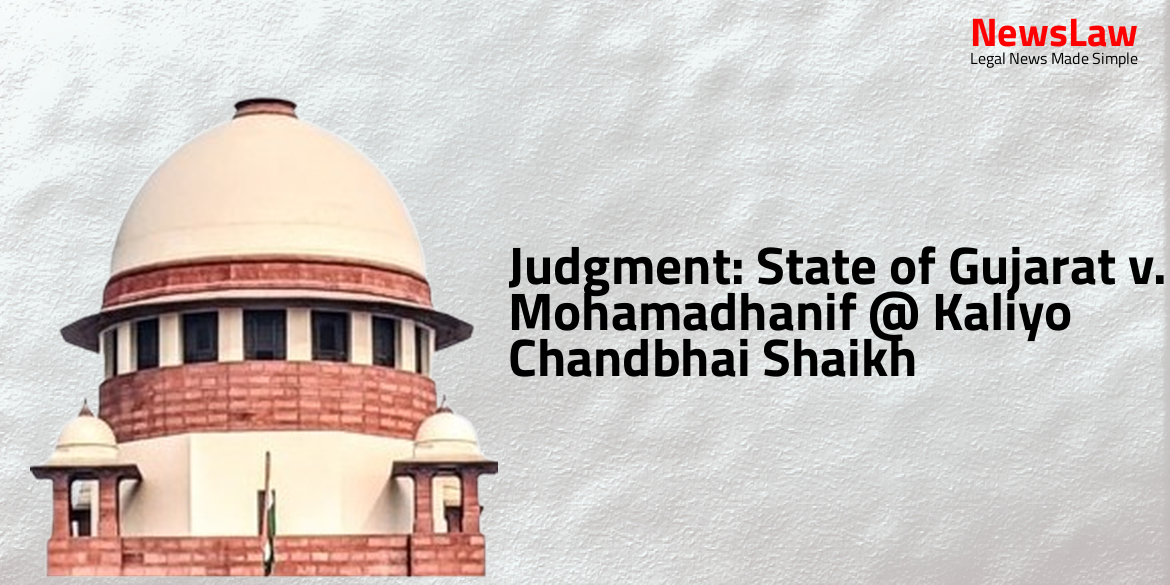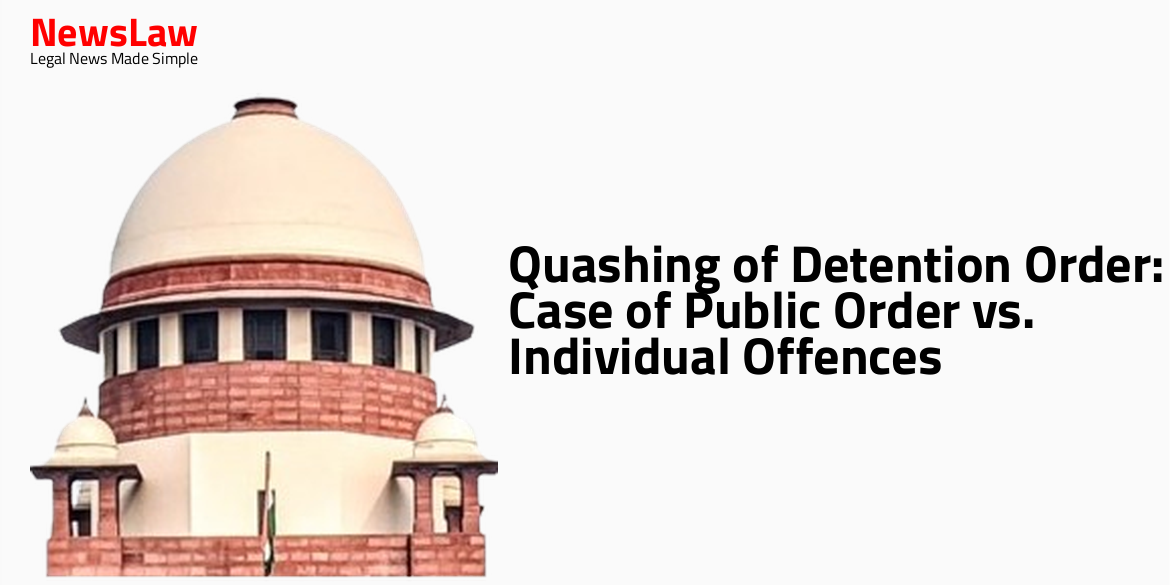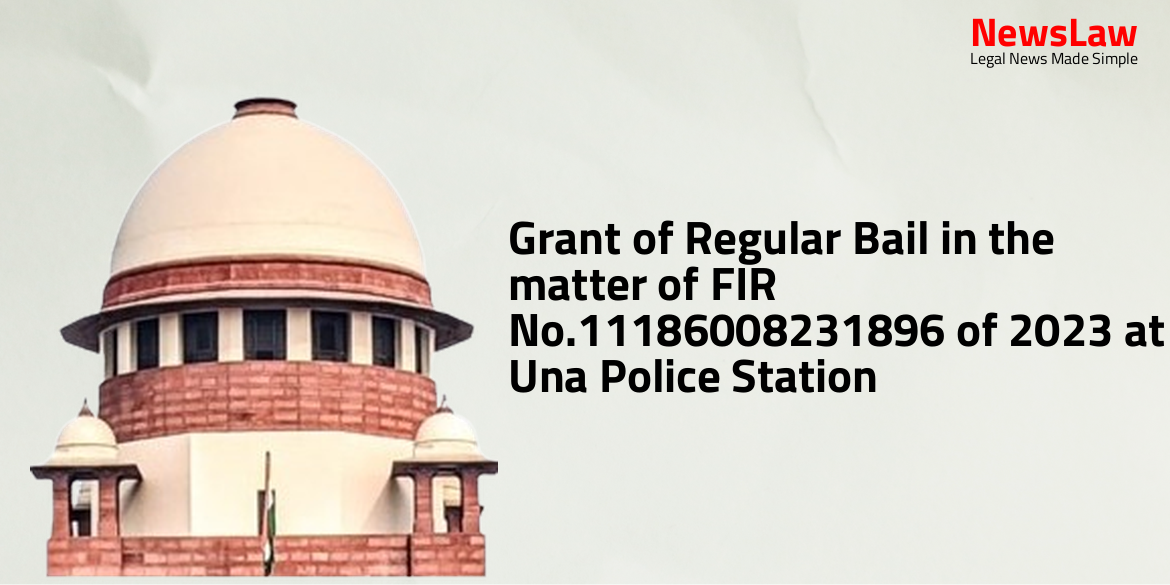A landmark judgment was passed by the Gujarat High Court in the case of State of Gujarat v. Mohamadhanif @ Kaliyo Chandbhai Shaikh. The court’s decision on the legality of the detention order has significant implications for preventive detention laws. Stay informed about this crucial legal development!
Facts
- The petitioner, Mohamadhanif @ Kaliyo Chandbhai Shaikh, was preventively detained under the Act of 1985 by the Police Commissioner, Ahmedabad.
- The petitioner challenged the legality of the detention order in this petition.
- Arguments were presented by Mr. Arif Qureshi for the petitioner and Ms. Shruti Pathak for the State.
- The advocate for the detenue argued that the grounds for detention did not relate to public order but were centered around law and order.
- It was contended that the alleged offenses did not impact public order but rather pertained to law and order concerns.
- The activities of the detenue were claimed to be prejudicial to law and order, not public order.
Issue
- The issue at hand is the legality of the order of detention under the Act of 1985.
- The Detaining Authority passed the order of detention, which is being questioned.
- The key concern is whether the detention order is legally valid.
- The order has already been executed on the applicant.
Arguments
- Learned State Counsel argued that the detenue is a habitual offender and his activities have a negative impact on society.
- The Detaining Authority considered the detenue’s antecedents and past activities before passing the order to prevent him from acting in a manner prejudicial to public order in the area of Ahmedabad.
Analysis
- The detaining authority erroneously linked the petitioner’s criminal cases to activities prejudicial to public order.
- The offences alleged against the petitioner, even though serious, did not disrupt public order.
- Granting bail in all offences suggests they do not pose a threat to public order.
- Merely being a bootlegger does not warrant preventive detention unless activities directly impact public order.
- Referencing two criminal cases, the authority failed to prove the petitioner’s actions were detrimental to public order.
- The detention grounds cited the petitioner as a dangerous person without clear evidence of public order disturbance.
- Distinction between law and order and public order was established in the case of Pushkar Mukherjee v. State of West Bengal.
- Mere disturbance of law and order leading to detention order is not sufficient for action under preventive detention Act.
- Acts of assault or injury to specific individuals do not necessarily amount to public disorder.
- For an action under the Preventive Detention Act, the disturbance must affect the community or the public at large.
- Serious and aggravated forms of disorder that directly affect the community fall under the Act, while minor breaches of peace with local significance primarily injure specific individuals.
- A mere disturbance of law and order leading to disorder is not enough for action under Preventive Detention Act, but a disturbance that affects public order does fall within the Act.
- The material on record is not sufficient to prove that the alleged activities of the detenue have adversely affected or are likely to affect public order.
- The subjective satisfaction of the detaining authority is not legal, valid, or in accordance with the law.
- The offenses or allegations against the detenue did not create a sense of insecurity, panic, or terror among the public, hence not affecting public order.
Decision
- Detenue to be set at liberty if not required in any other case
- Rule made absolute accordingly
- Direct service permitted
- Order impugned dated 27.12.2023 quashed
Case Title: MOHAMADHANIF @ KALIYO CHANDBHAI SHAIKH THROUGH MOHAMMADSHOEB CHANDMOHAMMAD SHAIKH Vs. COMMISSIONER OF POLICE
Case Number: R/SCR.A/5973/2024



